The Ministry of Foreign Affairs and the military headquarters of Greece are studying scenarios for a conflict between Hellas and Turkey in connection with the entry of Turkish research / drilling ships into the region of the continental shelf of Greece.
Greece, financially under pressure after twelve years of continuous economic destruction and clearly weakened in terms of defense, despite the latest inflows of French Rafale (financial shortfall in all three sectors after 20 years of no purchases of weapons systems takes many years and money to cover), will soon be called confront Turkey when it tries to explore within the Greek continental shelf.
Essentially, Greece is “self-sufficient,” as senior ED officers admitted in press briefing statements, thanks to Greek politicians agreeing to include defense spending in memos starting in 2010, despite multiple U.S. and French statements of support for the country. in the event of a conflict with Turkey.
The spasmodic efforts of recent years have not been sufficient to fill the vast gaps. If we go even further back, we see that every crisis since 1974 has had a negative impact on Greek sovereign rights in the Aegean due to the management of the crisis by Greek politicians. Even the crisis of March 1987, despite the alleged “victory of Greece”, allowed Ankara to achieve its goals, namely the cessation of Greek oil exploration at the Babur field, which is considered the most gold-bearing in the North Aegean Sea, and subsequently led to Davos in 1988, similar to the one how the Greek-Turkish war in Cyprus in 1974 was followed by Davos, Karamanlis and M. Ecevit in 1976.
The first Imi Crisis 1996 led in July 1997 to Madrid and to the recognition of Turkey’s vital interests by the Simitis government under Foreign Minister Papandreou, and also in Helsinki.
The second Imia Crisis of 2018 led to Ankara’s claim that Imia is Turkish, a permanent Turkish military presence around the islets, and the construction of military projects on the opposite Turkish coast.
The scenarios were developed by joint working groups of the Ministries of Foreign Affairs and Defense.
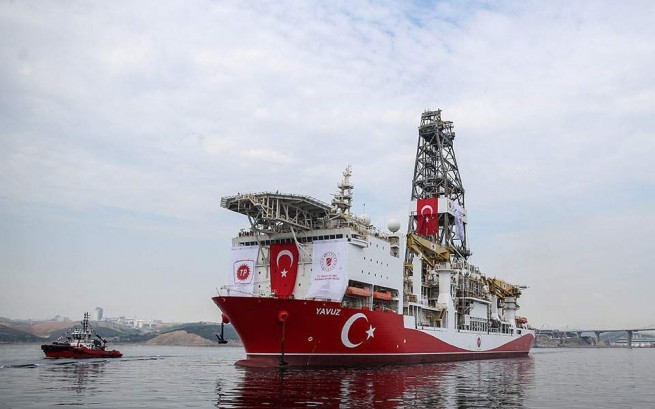
Scenario one: toconflict over oil exploration on the continental shelf
The first main scenario, which we see recurring from time to time, but which remains only at the level of a “cold” confrontation between the air forces of Greece and Turkey, is the scenario regarding oil exploration on the continental shelf. The last episode took place on October 21, 2016.
The research vessel RV Med Surveyor carried out research on behalf of Greece in an area stretching from the south of Kastellorizo to the west of Rhodes. The Greek authorities and the competent station in Heraklion issued NAVWARN 502/16 on 21 October, announcing that the vessel was carrying out scientific research with no date for completion of the research (“until further notice,” NAVWARN says).
But the very next day, when the ship was in the area of the Greek continental shelf in the area south of Kastelorizo, the Turkish frigate “Gelibolu” was asked to leave, as “it does not have a valid permit to conduct research in the area, which is part of the Turkish continental shelf, and therefore, in order to proceed with the work, he must apply to the Turkish authorities.” A diplomatic backstage ensued and Athens sent the frigate “Νικηφόρος Φωκάς” to the area until the survey vessel had completed its mission and left.
In exactly the same area, 80 nautical miles south of Rhodes, in the wider area of Kastellorizo, on the border of the Athens FIR between Greece and Turkey, a “reverse” incident occurred: between 14 and 16 November 2008, when the Norwegian research vessel MALENE OSTERVOLD was chartered by Turkey to conduct research within the Greek continental shelf.
The Norwegian vessel, acting on behalf of the Turkish Oil Company (TRAO), sailed from Mersin, escorted by the Turkish frigate GEDIZ (OH Perry type) and began surveying the area 80 nautical miles south/southeast of Kastellorizo within the Greek continental shelf on 14 November .
The Hellenic Navy P-61 gunboat “Πολεμιστής” called on the two ships to cease operations as they are within the Greek continental shelf and only the Greek government has the right to authorize prospecting in the area. Earlier that day, all three vessels were about 120 nautical miles southeast of Kastelorizo within the Greek continental shelf. The crisis ended on November 16 of that year, when the Norwegian ship and the Turkish frigate withdrew.
Later, Wikileaks released a cable from the US Embassy in Athens, according to which the then Chief of the General Staff, D. Grapsas, threatened to sink the MALENE OSTERVOLD if it continued its mission. Turkey, of course, did not forget this … The scenario provided for the strengthening of the Greek presence in the area where the incident would occur, with the special role of the 115th Air Force (F-16C / D Block 52+ base) in its control, as well as the mobilization of the 2nd parachute squadron, which was re-established in Crete, to man the rocky islets and strengthen the defense of the islands of Roe, Megisti (Kastelorizo) and Strongili with the help of airborne assault.
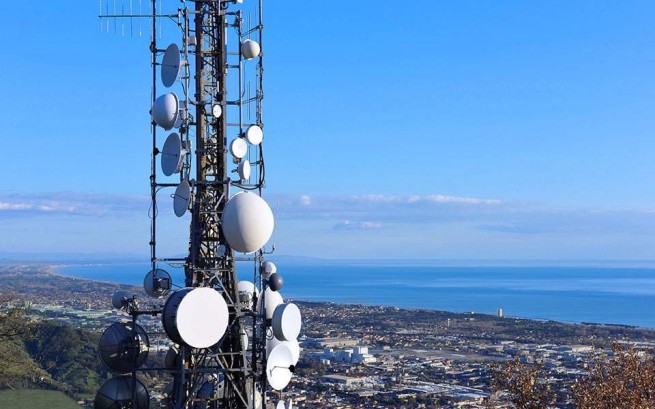
Scenario two: atinstallation of an antenna for mobile communications on one of the “no man’s” islands of the Aegean Sea
The following scenario is a very difficult case for the Greek side: it is a secret installation, i.e. unnoticed by the Greek authorities, the antennas of the Turkish mobile phone company’s network will be installed on a small island in the eastern Aegean Sea, not listed in the London, Lausanne and Paris treaties, and therefore, according to Turkey, “ripe” for claims.
The subsequent “accidental” discovery or disclosure (if it is in line with Ankara’s political plans at the time) of the existence of the antenna will by definition raise the issue of “ownership” of the island, and indeed, the more time passes since its installation, the stronger Turkey’s position will become, as it will present the lack of a Greek reaction to the construction of the antenna as a tacit recognition of Turkish rights to the island (of course, the Greek side cannot simply claim negligence or lack of surveillance, because in this case it cannot be justified!).
From a military point of view, this scenario is not special, but from a diplomatic point of view, this is what we call “impossible to resolve without the intervention of a foreign actor.”
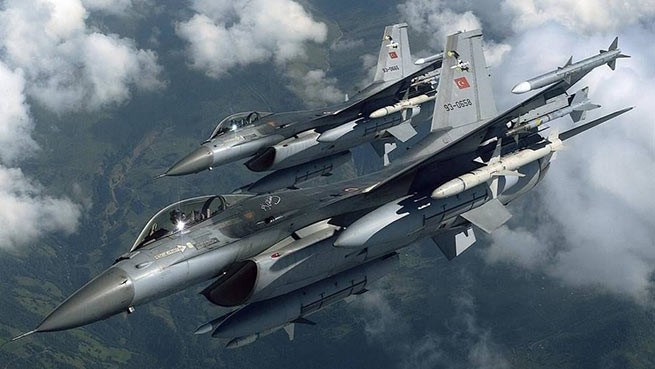
Scenario three – “nightmare”: the occupation of the Greek islands
This scenario concerns the occupation of a Greek inhabited island “not directly mentioned in the London, Lausanne, Paris treaties”, i.e. one of the 17 islands, which the Turkish Foreign Ministry on its official website calls “Islands with indefinite sovereignty.”
The garrison is captured, and then all the inhabitants are arrested and taken prisoner to a neighboring island, named in the treaties. Let us assume that this is the case of Agafonisi-Samos. At the political level, this is followed by Ankara’s announcement of the start of negotiations. Even more interesting is the development of the script. The ensuing Greek military operation fails and negotiations begin. Here the scenario boils down to the question of whether to escalate the actions of the armed forces or through negotiations to achieve the withdrawal of Turkish troops from the island and the return of the inhabitants.
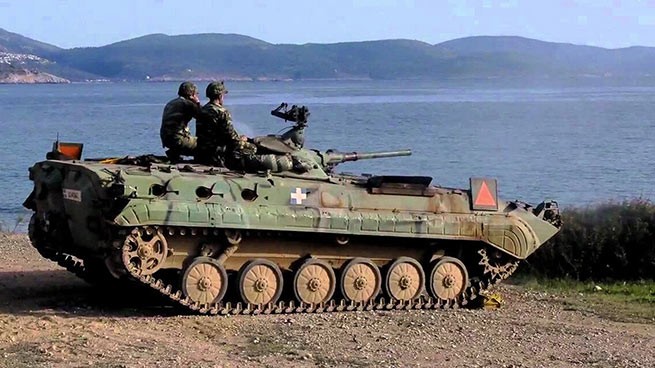
Scenario four: “sea blockade”
This is perhaps the most commonly used scenario in practice. Every time Turkey conducts naval exercises in the international waters of the Aegean Sea, even if it applies the rules and regulations of international law to the letter (in other words, applies for and declares reserved areas), one need only look at them to understand what is on practice, their delimitation is carried out in such a way as to “exclude” [виртуально, психологически (?)] the eastern “outskirts” of the Aegean archipelago from the rest of the continental and island country.
Here, of course, it should be noted that in practice, a naval blockade by surface forces and/or submarines constitutes an act of war, which, within the already established framework of the National Regulations on the Use of Arms (NWP), is considered as such. The development of events in the scenario provides that there is an air incident with Greek fighters or ships trying to enter the “blockade” zone, which does not have a positive outcome for the Greek side. The question arises: escalation by sending additional forces, or are we sitting at the status negotiating table in the Aegean?
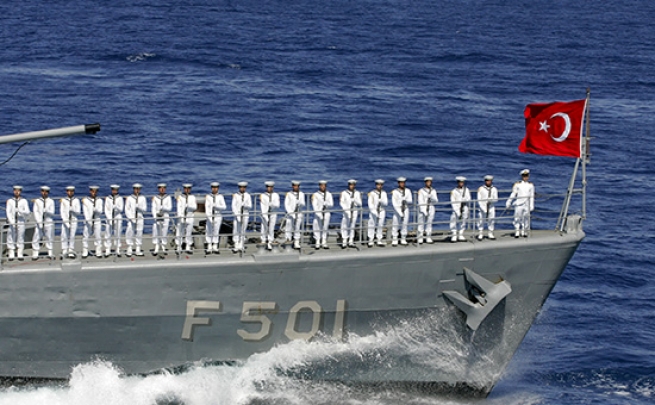
Fifth scenario: Occupation of the rocky islet or “Imiya scenario”
This scenario, unfortunately, is the only one that fully materialized and decisively characterized the January 1996 Imia crisis. This was the reason for the complete restructuring of the Greek defense system, in which structures and forces were developed that specialized in waging war in the archipelago areas, as well as new tactics. From this point of view, the Imia crisis may have brought political benefits to Turkey, in the sense which gave meaning to the “gray” zones and thus contributed to the further advancement of Turkish policy in the Aegean, but at the same time complicated the implementation of Turkish plans.
Since 1996, on at least 10 small islands in the East Asian archipelago, Turkish occupation has become even more difficult. Since 1996, at least 10 small islands in the Aegean have maintained a Greek presence with a garrison and permanent installations. A typical example is Pharmaconisiwhere permanent facilities for the needs of the garrison, a heliport, a pier, dirt roads and (possibly) defensive structures were built, the same is happening on the island of Panagia in the Inousses complex, where in April 2016 there were dangerous situations.
It is through this permanent presence (even if armed) that the sovereign rights of Greece are not only protected, but more importantly, they become reality not only on land, but also in the maritime and naval dimension. Add to this picture the frequent scheduled flights to and from Pharmaconisi by a CH-47D Chinook helicopter that replaces the garrison and transports supplies. The Greek presence is so “strong” that calls from Turkish air traffic controllers (as was the case at the end of 2008) to respect Turkish airspace have no response and therefore are not repeated.
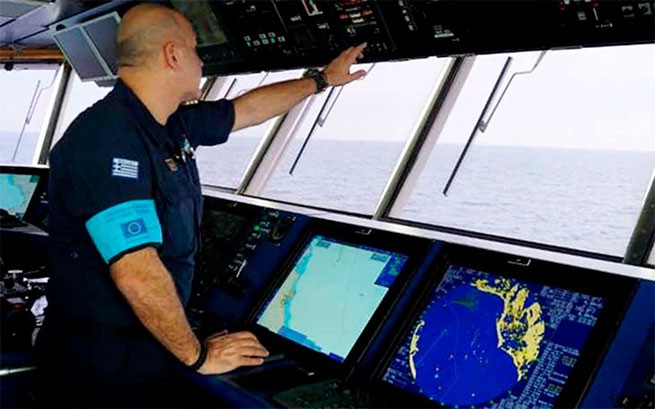
Scenario six: search and rescue
It concerns the contestation of the competence of search and rescue operations in practice by the Turkish Armed Forces and the interaction with the Greek Armed Forces. The maritime transport of huge masses of illegal migrants and the demand for a special political approach to this issue can easily provoke a crisis in which the Greek and Turkish armed forces will be involved. It is expected that NATO and FRONTEX will be directly involved in this scenario, but the question remains whether Greek military assets will be involved, and what the answer will be. And here, in addition to applying the rules of engagement, the Foreign Ministry calls not for escalation, but for further foreign participation.
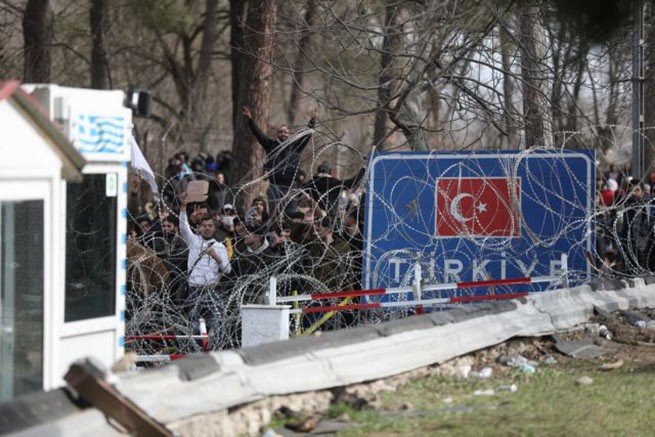
Scenario 7: “rebel movement” in Western Thrace
Provocations by minority extremists and subsequent clashes between extremists and security forces are attempts to seize military equipment depots. Also a nightmare scenario, since in this case Ankara will send an ultimatum. It became especially relevant after the statement of Turkish President R.T. Erdogan: “We cannot and will not be indifferent to the fate of our Turkish brothers and sisters in Western Thrace.”
Here, simultaneous action is planned at three levels: internal security, restoration of law and order, mobilization of the armed forces and informing foreign powers (USA, Russia, EU and UN). The nightmare of Kosovo haunts the Greek reaction.
Based on the publication of the edition ProNews.
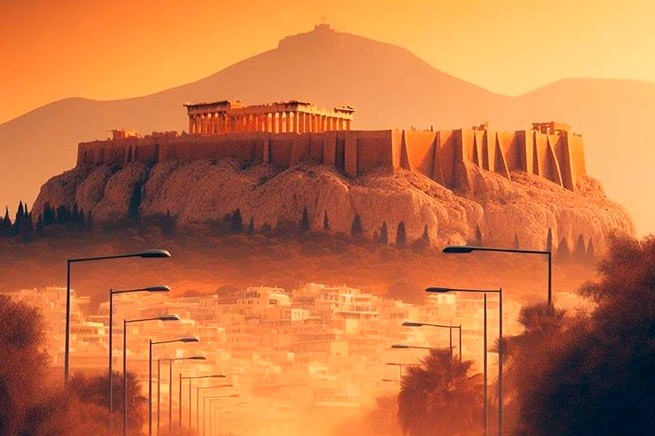



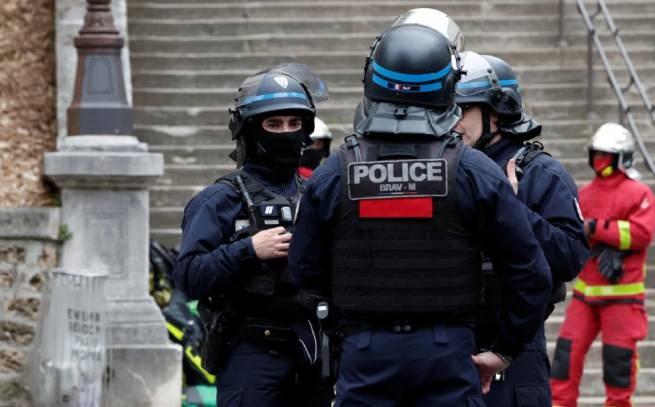
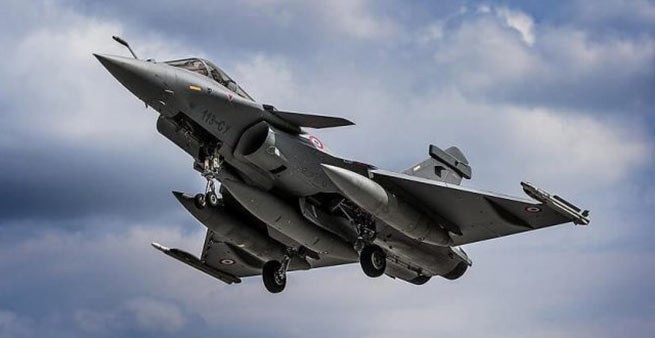

More Stories
Poll: which European countries are ready to defend their homeland to the last
K. Mitsotakis announced readiness for the fire season
Greece must transfer the Patriot PAC-3 system to Ukraine with US “guarantees” against the Turkish threat